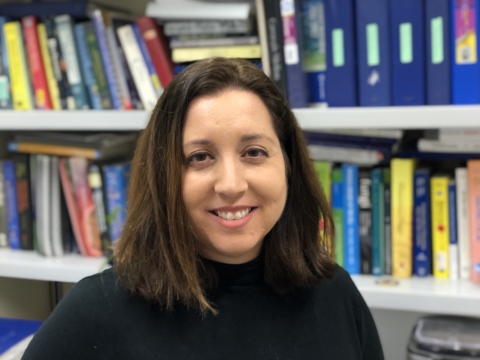
Date:
Location:
Speaker:
ABSTRACT:
Renewable chemicals derived from plant biomass are attractive alternatives to those made from petroleum. To produce chemicals from biomass, enzymes are used to break down cellulose into simple sugars, which are later fermented into value-added products. However, since cellulose is tightly bound within a network of crystalline cellulosic fibers and lignin, existing biomass degrading enzymes are not very efficient. To develop new technologies that break down plant material into sugar, much can be learned by studying how microbes digest lignocellulose in biomass-rich environments, such as the digestive tract of large herbivores. Our goal is to develop new experimental tools to engineer anaerobic microbial gut consortia for lignocellulose breakdown and chemical production. To accomplish this goal, we isolated a panel of anaerobic fungi and associated microbes from different herbivores and screened for their ability to degrade several types of lignin-rich agricultural waste. By focusing on model anaerobic fungi from the Piromyces, Neocallimastix, and Anaeromyces genera, we discovered thousands of new genes from these systems, revealing hundreds of novel biomass-degrading enzymes that are already competitive with industrial standards. We characterized key regulatory patterns for these enzymes, which depend on the environment of the fungus. Combined with proteomic approaches, a number of enzymes with non-catalytic fungal dockerin domains were also characterized, providing the first comprehensive insight into the composition and architecture of fungal cellulosomes. Using this information, we are developing new genetic engineering strategies to manipulate gut fungi at the molecular level, along with ‘bottom-up’ strategies to synthesize microbial consortia for compartmentalized breakdown and bioproduction.
BIO:
Michelle A. O’Malley earned a B.S. in Chemical Engineering and Biomedical Engineering from Carnegie Mellon University in 2004. She holds a PhD in Chemical Engineering from the University of Delaware in 2009, where she worked with Prof. Anne Robinson to engineer overproduction of membrane proteins in yeast. O’Malley was a USDA-NIFA postdoctoral fellow in the Department of Biology at MIT, where she developed new strategies for cellulosic biofuel production. She joined the Chemical Engineering faculty at UC-Santa Barbara in 2012, and her research group engineers protein synthesis within anaerobes and consortia for sustainable chemical production, bioremediation, and natural product discovery. O’Malley was named one of the 35 Top Innovators Under 35 by MIT Technology Review in 2015, and is the recipient of the Presidential Early Career Award for Scientists and Engineers (PECASE), a DOE Early Career Award, an NSF CAREER award, the Camille Dreyfus Teacher-Scholar Award, an ACS PMSE Young Investigator Award, an ACS WCC “Rising Star” Award, and a Hellman Faculty Fellowship.



